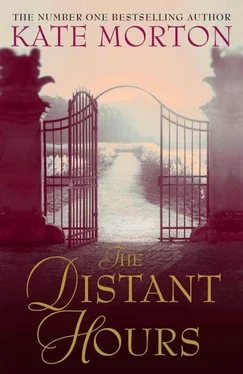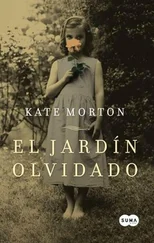And like that it was over, the conversation I’d been dreading for months. Relatively painless, which was good, but also somehow soulless, which wasn’t.
Mum stood then, and my first thought was that I’d been wrong, it wasn’t over and there was going to be a scene after all; but when I followed the direction of her eyes I saw that a doctor was coming towards us. I stood too, trying to read his face, to guess which way the penny was about to drop, but it was impossible. His expression was the sort that could be read to fit each scenario. I think they learn how to do that at medical school.
‘Mrs Burchill?’ His voice was clipped, faintly foreign.
‘Yes.’
‘Your husband’s condition is stable.’
Mum let out a noise, like air being pushed from a small balloon.
‘It’s a good thing the ambulance got there so soon. You did well to call it in time.’
I was aware of soft hiccuping noises next to me and I realized Mum’s eyes were leaking again.
‘We’ll see how his recovery progresses, but at this stage angioplasty is unlikely. He’ll need to stay in for a few days longer so we can monitor him, but his recovery after that can be done at home. You’ll have to watch him for moods: cardiac patients often struggle with feelings of depression. The nurses will be able to help you further with that.’
Mum was nodding with grateful fervour. ‘Of course, of course,’ and scrabbling, as was I, for the right words to convey our gratitude and relief. In the end she went with plain old, ‘Thank you, doctor,’ but he’d already withdrawn behind the untouchable screen of his white coat. He merely bobbed his head in a disconnected way, as if he had another place to be, another life to save, both of which he no doubt did, and had already forgotten quite who we were and to which patient we belonged.
I was about to suggest that we go in and see Dad when she began to cry – my mother, who never cries – and not just a few tears wiped away against the back of her hand; great big racking sobs that reminded me of the time in my childhood when I was upset about one trifling thing or another and Mum told me that while some girls were fortunate to look pretty when they cried – their eyes widened, their cheeks flushed, their pouts plumped – neither she nor I were among them.
She was right: we’re ugly criers, both of us. Too blotchy, too snarly, too loud. But seeing her standing there, so small, so impeccably dressed, so distressed, I wanted to wrap her in my arms and hold on until she couldn’t help but stop. I didn’t though. I dug inside my bag and found her a tissue.
She took it but she didn’t stop crying, not right away, and after a moment’s hesitation, I reached out to touch her shoulder, turned it into a sort of pat, then rubbed the back of her cashmere cardigan. We stood like that, until her body yielded a little, leaning in to me like a child seeking comfort.
Finally, she blew her nose. ‘I was so worried, Edie,’ she said, wiping beneath her eyes, one after the other, checking the tissue for mascara.
‘I know, Mum.’
‘I just don’t think that I could… If anything were to happen… If I lost him-’
‘It’s OK,’ I said firmly. ‘He’s OK. Everything’s going to be all right.’
She blinked at me like a small animal for whom the light is too bright. ‘Yes.’
I obtained his room number from a nurse and we negotiated the fluorescent corridors until we found it. As we drew close, Mum stopped.
‘What is it?’ I said.
‘I don’t want your father upset, Edie.’
I said nothing, wondering how on earth she thought I might be planning to do such a thing.
‘He’d be horrified to learn that you were sleeping on a sofa. You know how he worries about your posture.’
‘It won’t be for long.’ I glanced towards the door. ‘Really, Mum, I’m working on it. I’ve been checking the rentals but there’s nothing suitable-’
‘Nonsense.’ She straightened her skirt and drew a deep breath. Didn’t quite meet my eyes as she said, ‘You’ve a perfectly suitable bed at home.’
Home Again, Home Again, Jiggety Jig
Which is how, at the age of thirty, I came to be a single woman living with my parents in the house in which I’d grown up. In my very own childhood bedroom, in my very own five-foot bed, beneath the window that overlooked Singer & Sons Funeral Home. An improvement, one might add, on my most recent situation: I adore Herbert and I’ve a lot of time for dear old Jess, but Lord spare me from ever having to share her sofa again.
The move itself was relatively painless; I didn’t take much with me. It was a temporary arrangement, as I told anyone who’d listen, so it made far more sense to leave my boxes at Herbert’s. I packed myself a single suitcase and arrived back home to find everything pretty much as I’d left it a decade before.
Our family house in Barnes was built in the sixties, purchased brand new by my parents when Mum was pregnant with me. What makes it particularly striking is that it’s a house with no clutter. Really, none at all. There’s a system for everything in the Burchill household: multiple baskets in the laundry; colour-coded cloths in the kitchen; a notepad by the telephone with a pen that never seems to wander, and not one envelope lying around with doodles and addresses and the half-scribbled names of people whose calls have been forgotten. Neat as a pin. Little wonder I’d suspected adoption when I was growing up.
Even Dad’s attic clear-out had generated a polite minimum of mess; two dozen or so boxes with their lists of contents Sellotaped on the lids, and thirty years’ worth of superseded electronic appliances, still housed in their original packaging. They couldn’t live in the hallway forever, though, and with Dad recuperating and my weekends tumbleweed clear, I was a natural to take over the job. I worked like a soldier, falling prey to distraction only once, when I stumbled upon the box marked Edie’s Things and couldn’t resist ripping it open. Inside lay a host of forgotten items: macaroni jewellery with flaking paint, a porcelain trinket box with fairies on the side, and, deep down, amongst assorted bits and bobs and books – I gasped – my illicitly obtained, utterly cherished, hitherto misplaced copy of the Mud Man .
Holding that small, time-worn book in my grown-up hands, I was awash with shimmering memories; the image of my ten-year-old self, propped up on the lounge sofa, was so lucent I could almost reach across the years to poke ripples in it with my finger. I could feel the pleasant stillness of the glass-filtered sunlight and smell the reassuring warm air: tissues and lemon barley and lovely doses of parental pity. I saw Mum, then, coming through the doorway with her coat on and her string bag filled with groceries. Fishing something from within the bag, holding it out to me, a book that would change my world. A novel written by the very gentleman to whom she’d been evacuated during the Second World War…
I rubbed my thumb thoughtfully across the embossed type on the cover: Raymond Blythe. Perhaps this will cheer you up , Mum had said. It’s for slightly older readers, I think , but you’re a clever girl; with a bit of effort I’m sure you’ll be fine. My entire life, I’d credited the librarian Miss Perry with setting me on my proper path, but as I sat there on the wooden floor of the attic, the Mud Man in my hands, another thought began to coalesce in a thin streak of light. I wondered whether it was possible that I’d been wrong all this time; whether perhaps Miss Perry had done little more than locate and lend the title and it had been my mother who’d known to give me the perfect book at the perfect time. Whether I dared ask.
Читать дальше












